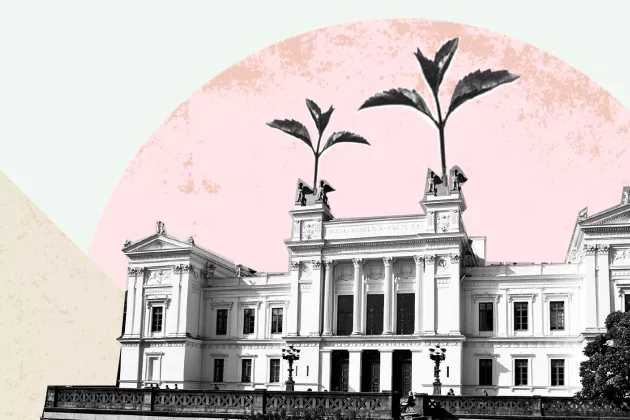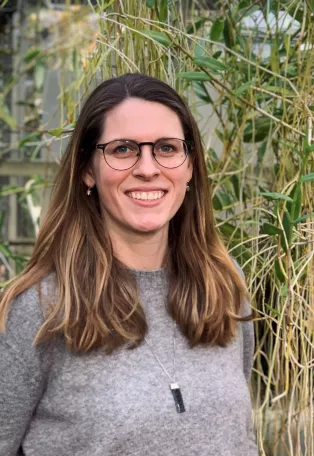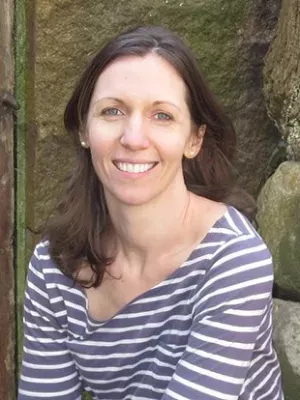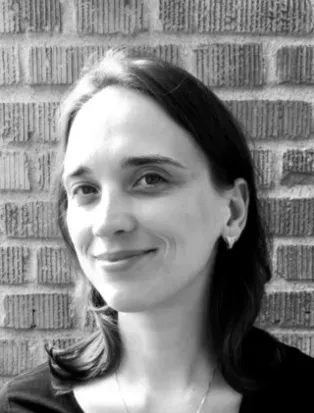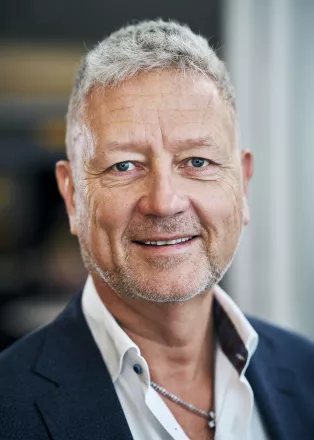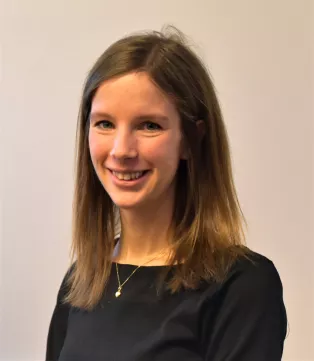Lund University is deeply committed to its sustainability strategy and sustainability plan, aiming for remarkable achievements in this area. We know that change requires new ideas. That's why staff at Lund University have the opportunity to seek funding to address real sustainability challenges within the organisation itself.
In 2024, this six projects will receive support of up to 300,000 SEK each, for a project period of up to 12 months.
Allison Perrigo, Lund University Botanical Garden
The Botanical Garden is the most visited public organization at Lund University,
with ca. 700,000 visitors annually. The Botanical Garden's strategy prioritises sustainability, with several ambitious goals. This project specifically aims to phase out the use of peat in the garden. Peat harvesting leads to high greenhouse gas emissions, extensive destruction of peatlands, and the loss of valuable ecosystems and biodiversity. Three aspects of improving practices will be implemented:
- speeding up transitions by testing more alternatives to peat at once
- research-based decision-making by bringing in researchers to discuss best practices
conducting outreach to inform the public about the efforts, including providing specific information that can be adapted to home gardens and private life.
A pause for menopause in the workplace
Cheryl Sjöström, Centre for Environmental and Climate Science
The topic of menopause is still taboo in most places of work, but the potential symptoms of menopause can have dramatic impacts on female workers’ well-being and work performance and thus on the workplace as a whole. The challenges this project aims to address are both the issue of social stigmas and lack of information surrounding menopause, as well as the experience of menopause itself, where active, suitable training for women in the ages from perimenopause to post menopause will be part of the project design. The project will apply a concept of both general and directed education that has promising results in other workplaces, with the longer-term goal of normalising menopause education as part of Lund University Occupational Health Services.
Reduce, reuse, redesign: LU as a testbed for tackling the plastic crises
Ekaterina Chertkovskaya, Environmental and Energy Systems Studies
LTH has a strong research profile in addressing sustainability issues in relation to plastics, including on the emerging phenomenon of alternative organising initiatives that address the plastic crisis in innovative ways. This research made clear that a systematic approach to addressing unsustainable plastic consumption practices at the organisational level is needed. Lund University is a big user of plastic through its various activities and represents an ideal testbed to identify existing practices and pathways to substantially reduce plastic use. This testbed project will provide pathways for a systematic reduction of plastic use at universities, combining the already existing the Plastic Inventory tool and a participatory approach that engages stakeholders throughout.
Lund University Microgrid platform
Mats Alaküla, Industrial Electrical Engineering and Automation
A microgrid is an autonomous electrical system that generates, stores and distributes energy to meet load demand. It operates either connected with the surrounding electricity grid or disconnected. A microgrid research platform will be built in the M building at Lund University, where components such as batteries, solar panels, hydrogen systems, generators with biofuel etc. already exists. Advanced technologies such as AI-driven decision making and digital twin will also be applied to the control of the platform. The built microgrid platform will increase the utilization of renewable energy, improve energy efficiency, security, resilience, and reliability, and reduce the risk of blackouts and electricity costs of the M building. Interdisciplinary research and collaboration in areas such as renewable energy sources, sustainable thermal energy, system studies, electrification, and energy storage will be strengthened through this project as well as provide sustainability teaching and training demonstrations. The project will plan for connecting existing equipment and sub-systems into a microgrid system.
Wellbeing in academia
Sara Willhammar, Department of Electrical and Information Technology
Mental health problems have long been documented in academia internationally. It is also a known problem at Lund University. Sick leave cost Lund University 31 million kronor in 2022 overall, and mental health was the most common illness type overall (80%) according to the CSK Protokoll (2023). The first part of the project is a digital resource with information on how to improve one’s own wellbeing, equipping people with the knowledge and tools needed to do so. The second part of the project is an exploratory study of how coaching could be implemented at Lund University. The project will investigate needs and options and produce a list of 3-5 models that could be adopted within the university. The resource will be relevant for all contexts, both prevention and intervention.
Greening Lund Nano Lab
Sarah McKibbin, Lund Nano Lab
Laboratories are some of the most energy intensive workplaces on the planet. In particular, cleanrooms and nanofabrication labs have some of the highest needs for energy consumption due to the need for climate control (temperature, humidity and particles) that affect ventilation demands; HVAC power requirements for processing equipment; and the waste generation and chemical consumption that is associated with the work that is done. Some steps have been taken at the Lund Nano Lab to reduce the overall energy consumption by, for instance, reduction of airflow at off-peak times, but significant investment would be needed to implement waste heat recovery. Achievable targeted topics to improve upon at Lund Nano Lab include optimising lab routines, minimizing unnecessary consumption of lab consumables (or recycling where possible) and improving user behavior. Several internationally recognized initiatives exist with which to evaluate lab practices and sustainability of lab operation and practices. This project proposes that Lund Nano Lab evaluates and participates in the best of these options to improve the sustainability of the lab.
Do you have a good idea?
A new call for the Sustainability Fund's testbed grant will open in November 2024.


